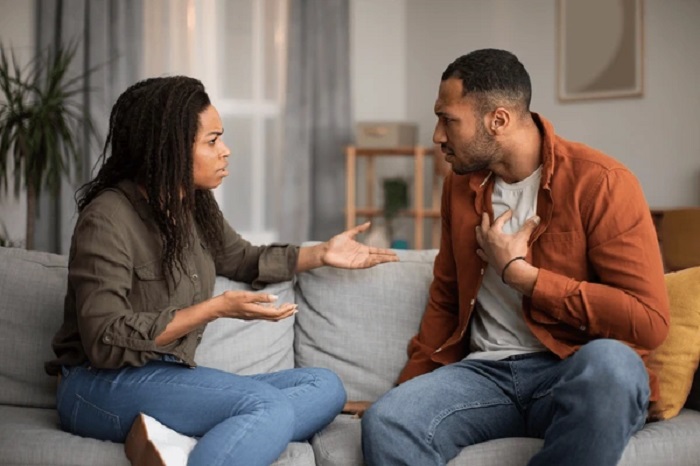Relationship
When Is It Wrong To Say “I’m Sorry” In A Relationship?
Saying “I’m sorry” in a relationship is crucial but can be damaging if overused, used manipulatively, or when one hasn’t actually done anything wrong.

Saying “I’m sorry” in a relationship is crucial but can be damaging if overused, used manipulatively, or when one hasn’t actually done anything wrong.
It’s important to use apologies sincerely and address underlying issues to strengthen the relationship.
In relationships, saying “I’m sorry” is often seen as a sign of empathy and understanding. It shows that you care about your partner’s feelings and are willing to take responsibility for your actions.
However, even though apologies are important, there are times when saying “I’m sorry” might not be the right response.
Here’s a look at when it might be wrong to say sorry in a relationship.
When it is wrong to say “I’m Sorry”
1. Over-Apologizing

When you say “I’m sorry” too often, it can start to lose its meaning. If you find yourself apologizing for every little thing, from the way you speak to how you cook, it might make your partner feel that you are not confident or that you think everything you do is wrong. This can lead to a power imbalance in the relationship where your partner feels dominant and you feel constantly at fault.
2. Avoiding Real Issues
Sometimes, “I’m sorry” is used as a quick fix to avoid dealing with deeper issues. If you apologize without addressing the root cause of the problem, the same issues will likely keep coming up. For example, if there is a recurring argument about spending too much time at work, simply saying sorry for each instance won’t solve the underlying issue of work-life balance.
3. Manipulation

Unfortunately, apologies can be used manipulatively. Saying “I’m sorry” to get out of trouble or to make your partner forgive you without true remorse or a plan to change behaviors is insincere. This not only damages trust but also prevents genuine healing and growth in the relationship.
4. When You Haven’t Done Anything Wrong
Sometimes, people feel pressured to apologize even when they haven’t done anything wrong, just to keep peace in the relationship. Apologizing when you’re not at fault can make you feel resentful and misunderstood, and it can teach your partner that they can blame you unfairly.
5. Repetitive Mistakes
If you keep making the same mistake and apologizing for it each time, the apology can start to feel meaningless. It’s important to back up your apologies with actions. Instead of just saying sorry, it’s crucial to show that you’re working on making changes to not repeat the mistakes.
When Should You Say Sorry?

Saying sorry is vital when you genuinely regret an action that hurt your partner. It should be heartfelt and followed by a discussion on how to prevent the issue from happening again. An apology in a relationship is about showing that you value your partner and are committed to their happiness as well as the health of the relationship.
In conclusion, while apologies are crucial, they must be used appropriately and sincerely. Overusing them or using them inappropriately can lead to more harm than good in a relationship. Being mindful of when and how you say “I’m sorry” can make your apologies more meaningful and your relationship stronger.
























You must be logged in to post a comment Login